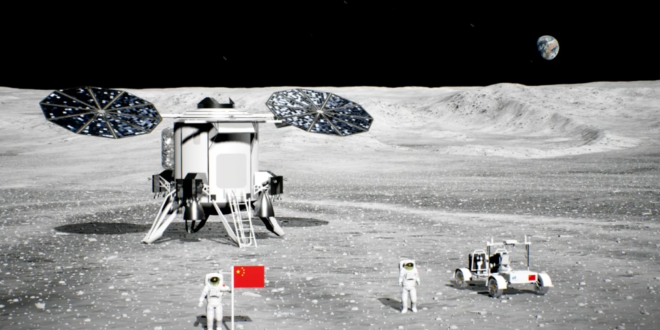China successfully launched its new lunar mission ‘Chang E-6’ on Friday (03 May). The aim of this lunar mission of China is to collect 2 kg of samples from the far side of the moon.
For this, the Chinese space agency successfully launched the ‘Chang E-6’ robotic lunar exploration mission from the Wenchang Space Launch Center at 5.37 am on Friday. China’s ‘Chang E-6’ mission can last up to 53 days, during which China’s robot will collect 2 kg of lunar samples from the dark area of the moon for analysis.
China’s space agency China National Space Administration (CNSA) has said that if this mission of China is successful, it will be a big achievement for China in space, because till now no country has returned with samples from such a distant area of the moon. China has named this mission ‘Chang E-6’ after the Moon Goddess. China hopes that their mission will be successful and will return with samples from the South Pole-Aitken Basin of the Moon.
Competition between China and America regarding lunar mission
Actually, there is a competition between China and America regarding lunar mission. China and America are launching lunar missions one after the other. In 2019, China’s ‘Chang E-4’ mission successfully landed on the moon. After this, China has also launched ‘Chang E-5’ in the year 2020, which successfully returned with 1.73 kg of lunar regolith from near the moon. However, the parameters of China’s ‘Chang E-6’ mission are more ambitious and scientifically more complex. Its four different spacecraft have been given the target of successfully bringing back up to 2 kg of regolith from the far side of the moon.
America wants to reach the moon before China
China’s goal is to bring humans to the moon by 2030. At the same time, NASA has already announced that America is delaying going to the moon, but by the year 2026, America will reach the moon before China. China National Space Administration (CNSA), a government agency of China, is responsible for this mission of China. The headquarters of China’s Space Agency is in Haidian, Beijing. This agency of China is responsible for civil space administration and international space cooperation.
 RB News World Latest News
RB News World Latest News






